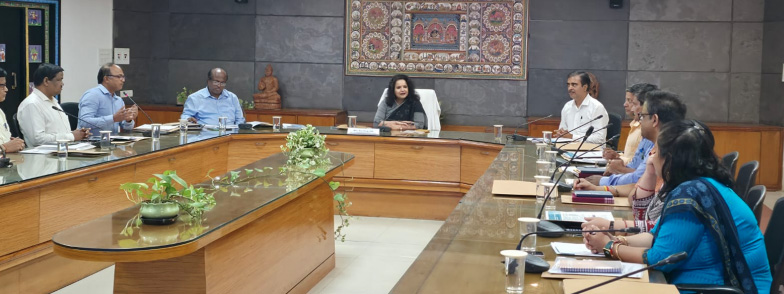Bhubaneswar: Odisha has taken a significant leap forward in bolstering its sustainable water resource management practices, according to the findings of an independent evaluation study shared at a high-level meeting held recently.
The meeting, chaired by Anu Garg, Development Commissioner-cum-Additional Chief Secretary, Water Resources Department, Government of Odisha, brought together senior officials from Water Resources, Finance, and other key stakeholders to discuss the impact of the Command Area Development and Water Management (CAD&WM) and Reconstruction of Field Channels (RCOFC) schemes.
The comprehensive study assessed the progress of these vital schemes between the financial years 2021-22 and 2023-24. Spanning across six sample divisions and encompassing both newly constructed and reconstructed field channel works, the evaluation showcased the state’s remarkable achievements in enhancing irrigation efficiency, fostering greater farmer participation, and boosting agricultural productivity through targeted interventions across 59 major, medium, and minor irrigation commands.
The key findings of the study painted a promising picture of progress. Notably, the evaluation revealed a substantial increase in irrigated land, surging from 44% to an impressive 89%. This reflects a remarkable 102% rise in the irrigation potential utilised (IPU). Furthermore, the average household-level irrigated land has doubled from 0.9 acre to 1.8 acres, empowering individual farmers with greater access to crucial water resources. This improved irrigation access has directly translated into increased agricultural output, with average paddy yields climbing by 18% and subsequently leading to an impressive 84% increase in farmers’ income.
Beyond these quantitative gains, the study also highlighted the positive impacts of the schemes on cropping intensity, indicating more efficient land use and increased agricultural activity throughout the year. The active engagement of farmers through Pani Panchayats (water user associations) was also lauded as a key factor in the success of the initiatives, fostering a sense of ownership and collaborative water management. The evaluation further pointed towards the socio-economic upliftment of farming communities as a direct consequence of improved irrigation and agricultural prosperity.
While celebrating the significant achievements, the independent evaluation also provided valuable recommendations for further improvement. These included suggestions for enhancing field channel construction standards to ensure long-term durability and efficiency, strengthening maintenance protocols to minimize water loss and maximize operational lifespan, and implementing further water governance reforms to promote equitable and sustainable water distribution.
Chairing the meeting, Smt.Garg commended the progress made under the CAD&WM and RCOFC schemes. She reaffirmed the State Government’s unwavering commitment to pursuing inclusive, technology-driven, and farmer-centric irrigation reforms. Emphasizing the importance of timely project execution and robust monitoring mechanisms, she also stressed the need for convergence with digital platforms to ensure efficient and transparent implementation.
This evaluation marks a significant milestone in Odisha’s journey towards sustainable water resource management. The positive findings underscore the effectiveness of the state’s strategic interventions in the irrigation sector, paving the way for enhanced agricultural productivity, improved livelihoods for farmers, and a more resilient water future for the state.


